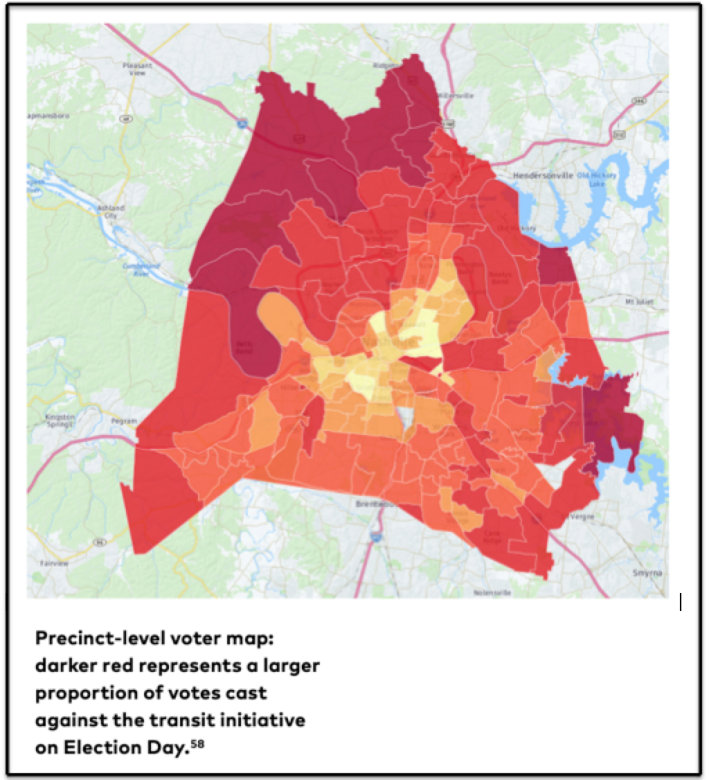For cities looking to expand and improve transit service, ballot measures are powerful tools to raise needed funds. But success at the ballot box is never a given.
Author Zak Accuardi finds that the Nashville transit plan was composed hastily, with little consultation or vetting beyond Nashville’s then-mayor, Megan Barry, and her inner circle. While ambitious, the plan that the mayor's team produced did not align with the priorities of current transit riders and other constituencies whose support was essential. The consultant-driven campaign lacked credibility with grassroots organizations and social justice advocates.

- Insularity. Project selection for the Let’s Move Nashville plan was largely shaped by the mayor’s office and Nashville’s business community. In developing the political strategy for Let’s Move Nashville, campaign staff did not stress-test the plan with residents or community leaders. Though the campaign coalition was nominally led by co-chairs who represented key grassroots constituencies, they were not in fact empowered to make decisions or influence strategy.The absence of meaningful public engagement dampened support for the plan among would-be allies. The Chamber of Commerce’s dominant role in the political campaign made many observers suspect the plan was driven by business leaders and real estate speculators, rather than by a broad public interest in improving transit access.
- Haste. The Chamber of Commerce recommended that the referendum be held in the off-cycle May elections of 2018. While turnout in these elections tends to be low, the voter base tends to lean Democratic, anchored by high African American turnout, and Mayor Barry’s poll numbers were high among African American voters during the planning phase for the referendum. The May date also supported Mayor Barry’s desire to move as quickly as possible and address Nashville’s transportation challenges before she ran for reelection in 2019.But this decision gave the mayor’s team very little time to make a series of high-stakes planning decisions, complete detailed engineering, and finalize the funding strategy and financing plan. This urgency also came at the expense of robust public engagement. If the election had been held a few months later, civic leaders might have had more time to build the kind of relationships that a strong coalition requires.
- Taking African American support for granted. African Americans comprise 29 percent of Nashville’s population and half of its transit ridership. But the mayor’s lackluster response to issues affecting Nashville’s African American community sapped support for the referendum in the year leading up to the election.Housing advocates, for example, were dissatisfied with the city government’s track record of implementing plans to increase and preserve affordable housing stock. They felt the mayor’s efforts to align housing policy with the transit referendum were too little, too late.
You can read the full report at Transit Center's website. Then let us know: what could your city learn from Nashville's example the next time a transit plan goes to the ballot box in your region?
Ben Fried (@benfried) oversees TransitCenter’s press strategy and communications. Previously, he was editor-in-chief of Streetsblog.







